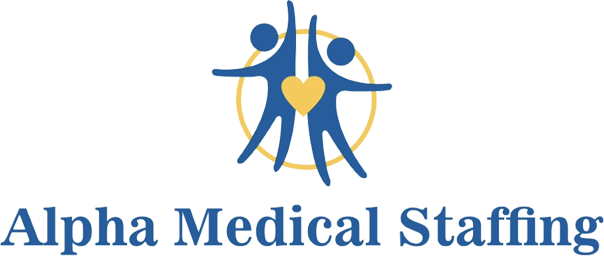Opinion | The Crucial Need for Allied Health Staffing in Pediatric Positions
As I stroll through the bustling corridors of a pediatric hospital, I am struck by the sheer dedication and unwavering commitment of the healthcare professionals who tirelessly care for our little ones. These heroes, from the doctors and nurses to the therapists and technicians, form the backbone of pediatric healthcare. However, one often overlooked group of professionals plays a pivotal role in ensuring comprehensive care for children: the allied health staff.
The Growing Demand for Pediatric Allied Health Services
According to recent studies, the demand for allied health services in pediatric care has surged in recent years. The prevalence of developmental delays, speech impairments, and physical disabilities among children has risen significantly, creating an urgent need for specialized care. The American Speech-Language-Hearing Association estimates that over 6 million children in the United States have a speech or language disorder. Additionally, the Centers for Disease Control and Prevention reports that 1 in 54 children is diagnosed with autism spectrum disorder, a condition that often requires the expertise of allied health professionals.
The Shortage of Professionals in Pediatric Positions
Despite the growing demand, the availability of allied health staffing in pediatric positions falls short. Reports indicate that there is a critical shortage of professionals such as speech-language pathologists, occupational therapists, and physical therapists, among others, in pediatric healthcare settings. The Health Resources and Services Administration (HRSA) states that more than 6,000 primary care health professional shortage areas exist in the United States, underscoring the magnitude of the issue.
The Consequences and Burden of the Shortage
The consequences of this shortage are far-reaching. Children who lack access to timely allied health services may experience delays in critical areas of development, hindering their ability to thrive academically, socially, and emotionally. Research published in the journal Pediatrics suggests that early intervention for speech and language delays can significantly improve a child’s long-term outcomes. Similarly, studies have shown that early access to physical therapy can enhance the motor skills and overall quality of life for children with disabilities.
Moreover, the shortage of allied health staffing places an immense burden on existing healthcare professionals. Pediatricians and nurses, already faced with heavy workloads, are forced to take on additional responsibilities beyond their areas of expertise. A survey conducted by the American Academy of Pediatrics found that nearly 90% of pediatricians reported challenges in accessing allied health services for their patients, leading to increased stress and potential gaps in care.
Addressing the Shortage: Solutions and Initiatives
To address this critical issue, it is imperative to allocate increased funding and resources to attract and retain allied health professionals in pediatric positions. Scholarships, loan forgiveness programs, and competitive salaries can incentivize students to pursue these specialized fields. The HRSA has implemented initiatives like the National Health Service Corps to encourage healthcare professionals to work in underserved areas, including pediatric settings.
Establishing partnerships between academic institutions and healthcare organizations can also play a crucial role in addressing the shortage. By creating pipelines for training and placement of allied health staff in pediatric settings, we can ensure a steady supply of professionals to meet the growing demand. Collaborative efforts between universities, hospitals, and community organizations can facilitate internships, residency programs, and continuing education opportunities for allied health professionals.
Furthermore, creating a supportive and inclusive work environment is vital for retaining allied health professionals in pediatric positions. Offering ongoing professional development opportunities, mentorship programs, and interdisciplinary collaboration can foster a sense of belonging and growth. Additionally, providing adequate resources and technology that support their work can enhance efficiency and job satisfaction.
Recognizing the Value of Allied Health Professionals in Pediatric Care
As a society, we must recognize the invaluable contributions of allied health professionals in pediatric care. Their expertise and compassion make a profound difference in the lives of children and their families. By investing in allied health staffing, we are investing in the future of our children, providing them with the best possible chance to thrive and reach their fullest potential.
In Conclusion
The shortage of allied health staffing in pediatric positions poses a significant challenge to the healthcare landscape. To address this issue, we must prioritize the recruitment and retention of these invaluable professionals who play an integral role in the well-being of our children.
Facts and Figures:
- Growing Demand: The demand for pediatric allied health services is projected to increase by 16% for occupational therapists and 25% for speech-language pathologists.
- Shortage of Professionals: 58% of counties in the United States have a shortage of speech-language pathologists, 49% have a shortage of occupational therapists, and 35% have a shortage of physical therapists.
- Geographic Disparities: Rural areas have fewer occupational therapists and speech-language pathologists per capita compared to urban areas.
- Impact on Children: Early intervention and ongoing therapy are crucial for children with speech and language disorders as well as those with physical disabilities.
- Burden on Healthcare Professionals: The shortage of allied health staffing places a significant burden on existing healthcare professionals, leading to increased workloads and potential gaps in care.
Addressing the shortage of allied health staffing in pediatric positions requires a multifaceted approach. It starts with recognizing the importance of these professionals and advocating for increased funding and resources to attract and retain them.
Collaboration between academic institutions and healthcare organizations is vital in establishing training programs and facilitating the placement of allied health professionals in pediatric settings. Creating a supportive work environment that promotes professional growth and provides adequate resources is also crucial for retaining allied health professionals in pediatric positions.
Investing in these professionals is not only an investment in the well-being and future of our children but also in the overall quality and continuity of pediatric healthcare. By addressing the shortage and ensuring access to allied health services, we can give every child the opportunity to thrive and reach their full potential.

